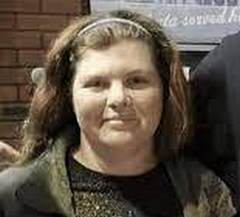![]()

A Nebraska mother who admitted giving her teenage daughter pills for an abortion and helping to burn and conceal the fetus has been sentenced to two years in prison.
42-year old Jessica Burgess pled guilty in July to tampering with human remains, false reporting, and providing an abortion after at least 20 weeks of gestation, which is illegal in Nebraska.
Madison County District Judge Mark Johnson on Friday sentenced Burgess to one year on each count, but ordered the tampering and false reporting sentences to run at the same time, followed by the sentence on the abortion charge.
Her attorney sought probation, but Judge Johnson said Burgess demonstrated that she knew she was breaking the state’s abortion law by initially lying to investigators about it and by going to “extraordinary means” to obtain the pills online instead of through a Nebraska medical provider.
Johnson told Burgess “I shudder to think that you have such disrespect for a -call it a human fetus, call it a stillborn child – that you would treat it like yesterday’s trash and not give it some respect in its treatment and disposal. Our society expects more; it demands more.”
Both Burgess and her now 19-year old daughter Cassie, who was in the courtroom for her mother’s sentencing, wept as the elder woman was taken away in handcuffs to begin serving her sentence. She will be eligible for release after about a year.
Cassie Burgess pled guilty to charges for burning and burying the fetus. She was sentenced in July to 90 days in jail and two years of probation, and was released from jail on September 11.
Court records show Norfolk police opened an investigation into the abortion following a tip and secured a search warrant to gain access to Facebook messages between Burgess and her daughter.
Prosecutors say the women discussed terminating the pregnancy and destroying the evidence. Police then found the burned fetal remains buried in a field north of Norfolk.
During the legislative session that ended in June, lawmakers opposed to Republican efforts to severely restrict abortion access repeatedly cited the case as showing state prosecutors would target women who seek abortions for criminal prosecution.
